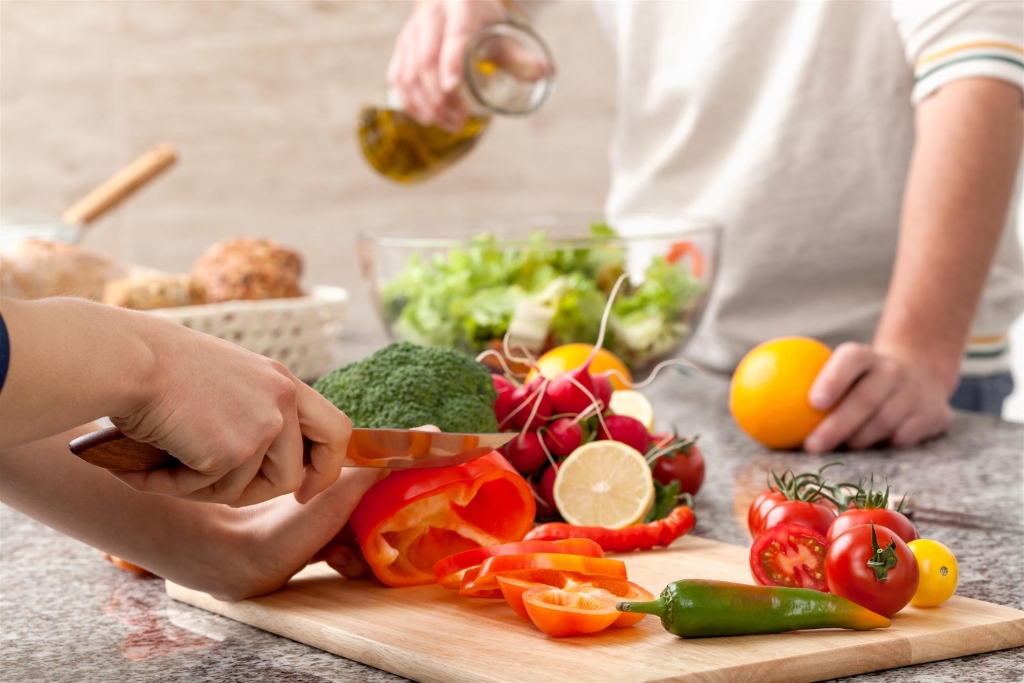5 Easy Diet Tips to Help Prevent Bladder Leakage
Bladder leakage (called urinary incontinence or UI), is a common problem. In fact, one in three women will experience some form of UI in her lifetime. The physical stress and strain of pregnancy and childbirth, and hormonal changes during menopause, are common contributing factors.
The bladder, uterus, and bowel are held firmly in place by the pelvic floor muscles, which extend across the pelvis like a hammock. These vital muscles can become weakened over time, resulting in bladder leaks when you strain from laughing, coughing, sneezing, or other exertion. This is called stress urinary incontinence, and it’s one of the most common forms of UI.
Kegel exercises with a bladder biofeedback device like PeriCoach can help strengthen the pelvic floor muscles over time, reducing episodes of bladder leakage.
Diet matters, too. Certain foods can irritate the bladder or otherwise increase the likelihood of bladder leakage. Here are 5 diet tips to prevent bladder leakage.
1: Cut back on the caffeine
For many of us a cup of coffee is a routine part of our morning, but for people with bladder leakage it may come at a hefty price. Caffeine is a diuretic and stimulant that increases urine production and can exacerbate feelings of urgency. Cut back on caffeine by opting for decaf coffee and herbal teas instead.
2: Ditch artificial sweeteners and reduce sugar intake
Artificial sweeteners are suspected to worsen overactive bladder symptoms, and their general safety is an ongoing matter of debate.1,2 There is even some evidence to suggest that artificial sweeteners may lead to weight gain.3 Sugar, and even honey, have also been linked to bladder irritation, and may contribute to bladder leaks.
Cutting down on sugar and eliminating artificial sweeteners can help you reduce bladder leaks and also help you keep your weight under control—and excess weight is often a contributing factor in type 2 diabetes, which is also known to contribute to bladder problems.
3: Take it easy on the alcohol
Like caffeine, alcohol is a diuretic and a stimulant. It can increase the urge to go and make you produce more urine. It can also irritate the bladder and interfere with signals from the brain to the bladder. Cocktails with carbonated beverages like tonic water are popular, but carbonation can irritate the bladder, so it’s best to avoid carbonated drinks altogether. If you do drink alcohol, aim for no more than one drink per day, at most.
4: Eat more fiber
Constipation can contribute to bladder leaks by restricting the amount of urine your bladder can hold, and straining can damage your pelvic floor muscles. If you have problems with constipation, odds are you’re one of the many people who aren’t getting enough fiber in your diet. One study found that less than 4% of Australians are eating enough fiber-rich vegetables and legumes.3 Choose plenty of whole fruits (not juices), vegetables, legumes, and whole grains to boost fiber in your diet and help prevent constipation.

5: Avoid acidic foods
Foods like citrus fruits, tomatoes and tomato-based products (e.g. pasta sauce), and berries, contain acid that can irritate the urinary tract. Choose low-acid fruits instead, like avocados, bananas, and melons.
Finally, make sure you’re drinking enough water, which is essential for a whole range of bodily functions, including digestion and nutrient absorption, temperature regulation, and excretory function.
It can be a catch-22 for people with bladder leaks: Drinking too much water can trigger leaks, yet dehydration can concentrate urine, which can irritate the bladder. The key is finding the right balance—talk with your doctor about your water intake if you are prone to bladder leaks.
Making the dietary changes recommended above and keeping your pelvic floor muscles strong can help reduce or eliminate episodes of stress incontinence. Learn more about how the PeriCoach kegel exerciser can help.
Sources:


